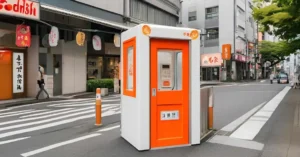You must already be familiar with the concept of online shopping. It’s a type of shopping that is more practical and easy to do, hence why it’s the preferred method of shopping currently. The appearance of the COVID-19 pandemic pushes the general public’s attention level to the maximum for this easy-to-do method of shopping.
The increase in interest causes the companies that are running online shopping platforms to provide products that are not only of a good quality, but also within the legal boundaries.
Supplying products that are considered pirated or counterfeits is prohibited by Law Number 28 of 2014 concerning Copyright. The reason behind that is because not only is it detrimental to the creators and buyers, but it also harms the Indonesian market’s reputation. Especially if the companies allowing counterfeits to be sold on their platforms are well-known companies, with a good reputation as well as high expectations.
Recently, there’s news that three high reputation e-commerce companies in Indonesia are under the United States’ watchful eyes. The news appeared soon after the release of the Notorious Market List of 2021. Two Indonesian e-commerce companies are named within said list, they are Tokopedia and Bukalapak. The other company, which is considered very popular in Indonesia albeit not made here, is Shopee.
How Did The Three Companies Get On The List?
The Notorious Market List of 2021 explained very thoroughly their reasons for naming Tokopedia, Bukalapak and Shopee as notorious markets. For Tokopedia, the list states, “ Right holders report finding high rates and volumes of counterfeit clothing, counterfeit cosmetics and accessories, pirated textbooks, and other pirated English- language materials on this platform.”
The penalty system for repeat offenders is also considered ineffective by the list. While concerning Bukalapak, Notorious Market List states, “Right holders note that the majority of branded products on this platform are not genuine and that items are often openly labeled ‘replicas’ of branded products.”
Similar to Tokopedia, Bukalapak is also considered ineffective in its efforts to fight piracy. The ineffectiveness causes users that are already known to be selling pirated goods or counterfeits to have the ability to return and continue their illegal activity using different accounts.
Shopee was reported to offer counterfeit goods in all their branches, excluding the Taiwanese one. “Right holders report that Shopee’s notice-and- takedown procedures are burdensome, decentralized, ineffective, and slow,” said Notorious Market List in its report.
Bukalapak, Tokopedia and Shopee made their responses in regards to this matter through their representatives. Baskara Aditava, AVP of Marketplace Quality in Bukalapak declared, “Bukalapak is committed to protecting Intellectual Property and prohibiting the sale of counterfeit and pirated goods in our platform. All violations of Bukalapak’s Usage Rules will be subject to sanctions.”
Tokopedia stated that their platform acts decisively against violations of the applicable laws within this country. “Even though Tokopedia is UGC, where every user can upload their product independently, we also continue to take cooperative actions to keep activities on the Tokopedia platform in accordance with applicable laws,” explained Ekhel Chandra Wijaya, External Communications Senior Lead at Tokopedia.
Meanwhile, Shopee explained that the company prohibits the sale and purchase of counterfeit or pirated products on their platform. Efforts to protect Intellectual Property are carried out in the form of policies and procedures that are present to identify IP violations. “Shopee is firmly committed to protecting intellectual property rights and fighting piracy. We strictly prohibit the sale of pirated goods on our platform,” explained a Shopee Spokesperson.
The conclusion that can be drawn from the Notorious Market List review is that these well-known e-commerce companies have platforms that are not friendly to Intellectual Property. The abundance of counterfeit goods that seem normalized, is supported by the ineffectiveness of their system in fighting Intellectual Property infringement.
Indonesian Regulation Against Counterfeit Products
Article 113 paragraph 3 of Law Number 28 of 2014 concerning Copyright stipulates that parties who violate the economic rights of the author in the form of publishing, duplicating, distributing or copying, and announcing the work for commercial purposes are threatened with a maximum imprisonment of 4 years and/or a fine. a maximum of IDR 1 billion.
Then in paragraph 4 of the same article it is also regulated that if the violation is in the form of piracy, the perpetrator is threatened with a maximum imprisonment of 10 years with a maximum fine of IDR 4 billion.
Then, why are piracy and copyright infringement still rampant on e-commerce platforms? Is it due to lack of understanding? This is questionable considering copyright infringement as an illegal activity is public knowledge. If not for a lack of understanding, why do certain individuals continue to carry out their illegal activities?
E-commerce platforms themselves are not completely absolved from blame in this matter. The reason is, they are also responsible for protecting consumers and copyright owners. They are therefore required to design a system that supports copyright protection so that there is no place for violators to enter the platform.
Article 114 of the Copyright Law also regulates the responsibilities of the marketplace as a place of trade. “Anyone who manages a trading place in all its forms who purposely and knowingly allows the sale and/or reproduction of goods resulting from copyright infringement and/or related rights in the trading place he manages as referred to in Article 10, shall be punished with a fine of a maximum of IDR 100 million .”
Therefore e-commerce platforms should be active in efforts to eliminate counterfeit products from their platforms, either through a more proactive system or the implementation of a more effective and straightforward reporting process.
Government Regulation Number 80 of 2019 concerning Trading Through Electronic Systems lists a number of principles that must be prioritized by e-commerce operators, namely the principles of good faith, prudence, transparency, trustworthiness, accountability, balance as well as fair and well. The meaning of each of these principles can be seen in the explanation section of the regulation.
The principle of accountability requires e-commerce platform operators to carry out trade relations with consumers responsibly and in accordance with applicable laws and regulations. E-commerce platforms must provide protection and efforts to overcome counterfeit products traded on their platforms as a form of responsibility for having exposed the platform users to these counterfeit products.
The principle of transparency also places an obligation on e-commerce operators to ensure transparency of information about business actors (e-commerce providers), consumers, and goods or services that are the object of the transaction. If it is reported that a product sold on their platform is fake, then there should be transparency. Explain to the reporting party the progress of the response to the report.
Bukalapak, Shopee, and Tokopedia have indeed made efforts to protect copyright in their e-commerce operations. However, it cannot be denied that those efforts are arguably still not enough considering these e-commerce companies still find themselves on the Notorious Market List 2021.
Have you ever seen a fake product on an e-commerce platform? Learn more about Intellectual Property in Indonesia through our website ambadar.co.id or our official social media. Feel free to contact us via e-mail marketing@ambadar.co.id for your Intellectual Property services.
Source(s):
- CNN Indonesia
- 2021 Review of Notorious Markets for Counterfeiting and Piracy
- Law Number 20 of 2014 concerning Copyright
- Government Regulation Number 80 of 2019 concerning Trading Through Electronic Systems






